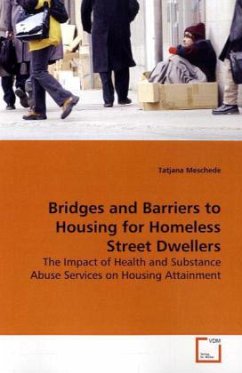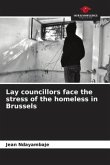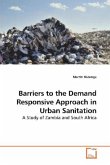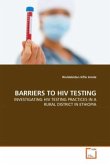Chronic homelessness has been on the rise in the
USA and elsewhere. This research project focuses on a
group of chronically homeless street dwellers in
Boston, Massachusetts in 2000-2002 who due to their
poor health status are at high risk of death. This
in-depth case study analyzes administrative data on
health and substance abuse service use and associated
outcomes. In addition, structured interviews with
service providers and street dwellers provide
information on the process of accessing services and
housing outcomes. Research findings indicate that
only 24 percent of street dwellers were housed at the
end of 2002. Except for long respite care stays,
health and substance abuse services had little impact
on housing outcomes. Interview data point to service
coordination and consistent staff support as bridges
to housing. Barriers encompass lack of affordable
housing, lack of support during transition from the
streets to housing, lack of financial supports,
program eligibility rules, and personal factors.
Policy implications include the need for affordable
housing, support systems for successful transitions
between the streets and housing, and reducing
bureaucratic barriers.
USA and elsewhere. This research project focuses on a
group of chronically homeless street dwellers in
Boston, Massachusetts in 2000-2002 who due to their
poor health status are at high risk of death. This
in-depth case study analyzes administrative data on
health and substance abuse service use and associated
outcomes. In addition, structured interviews with
service providers and street dwellers provide
information on the process of accessing services and
housing outcomes. Research findings indicate that
only 24 percent of street dwellers were housed at the
end of 2002. Except for long respite care stays,
health and substance abuse services had little impact
on housing outcomes. Interview data point to service
coordination and consistent staff support as bridges
to housing. Barriers encompass lack of affordable
housing, lack of support during transition from the
streets to housing, lack of financial supports,
program eligibility rules, and personal factors.
Policy implications include the need for affordable
housing, support systems for successful transitions
between the streets and housing, and reducing
bureaucratic barriers.








